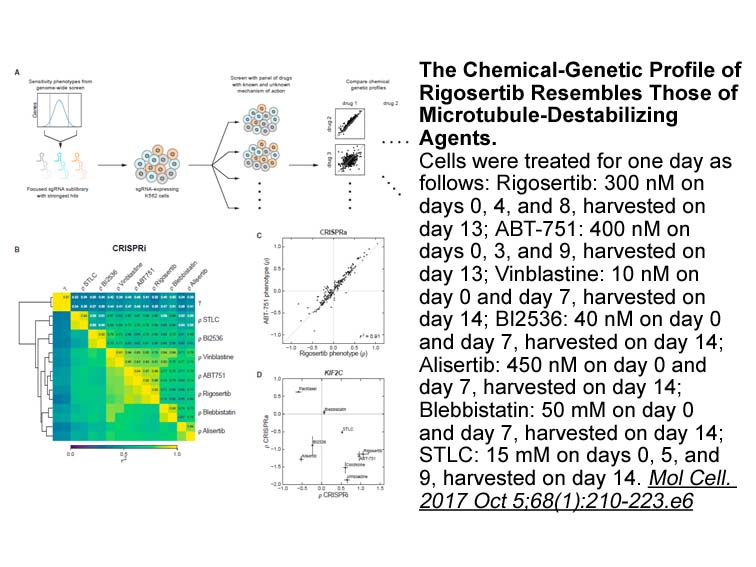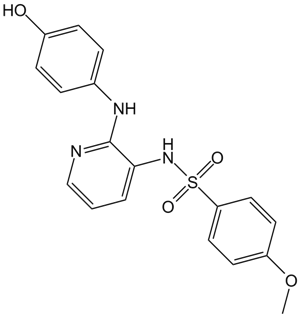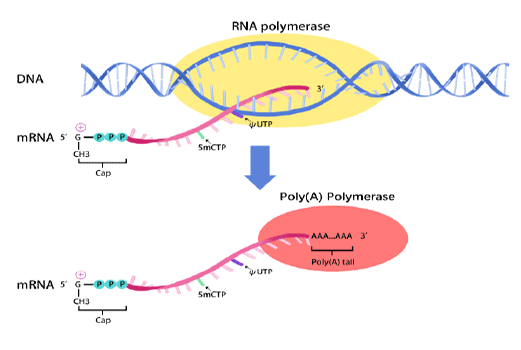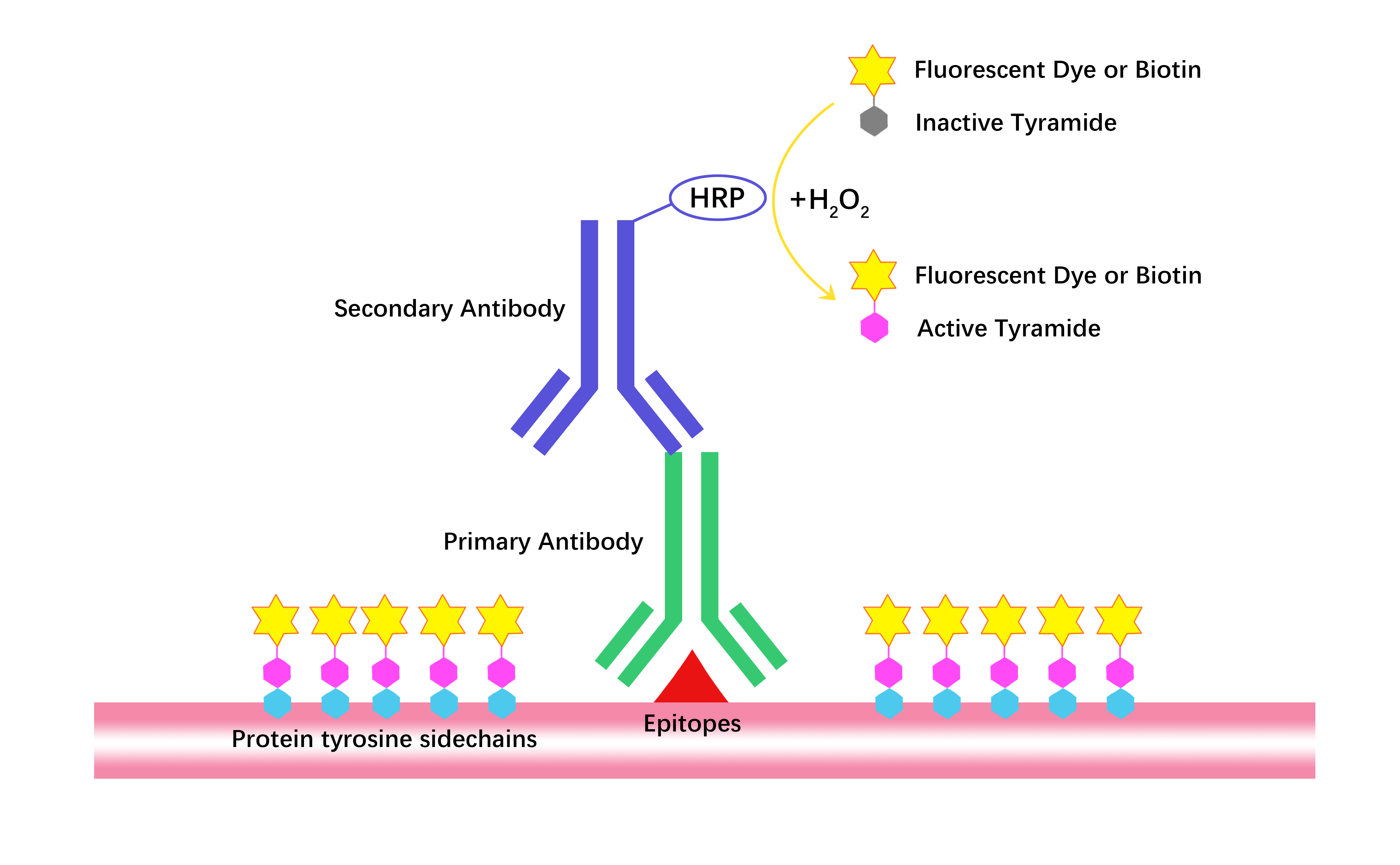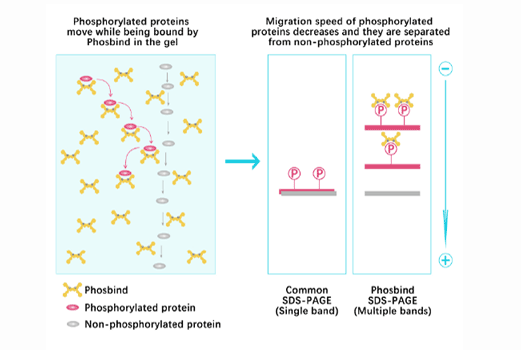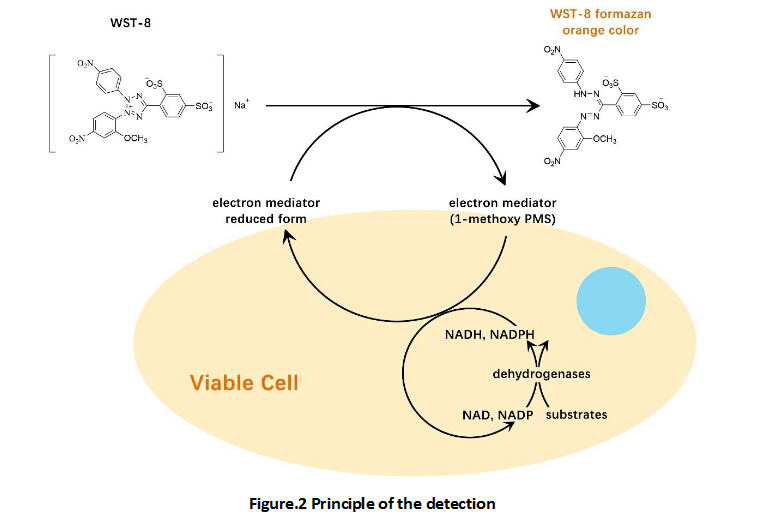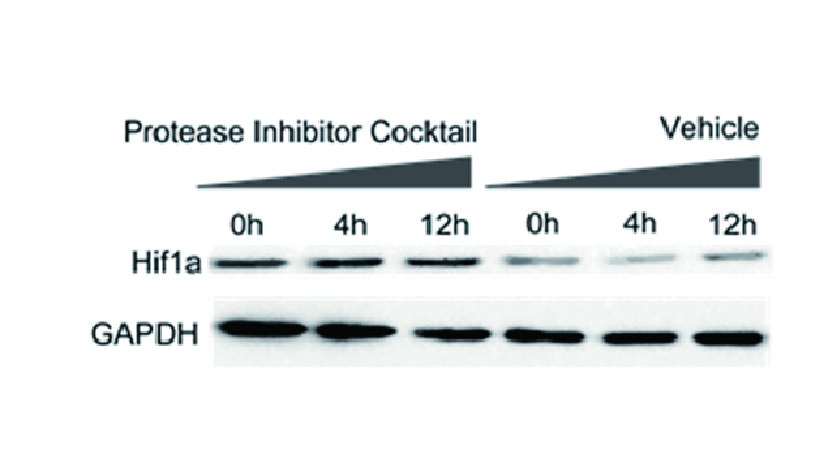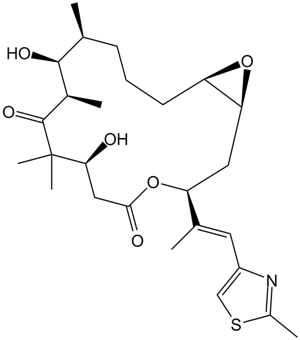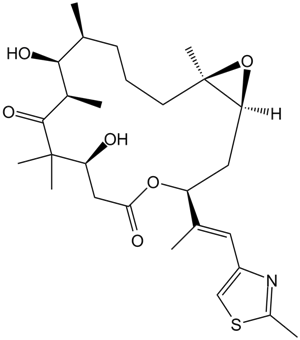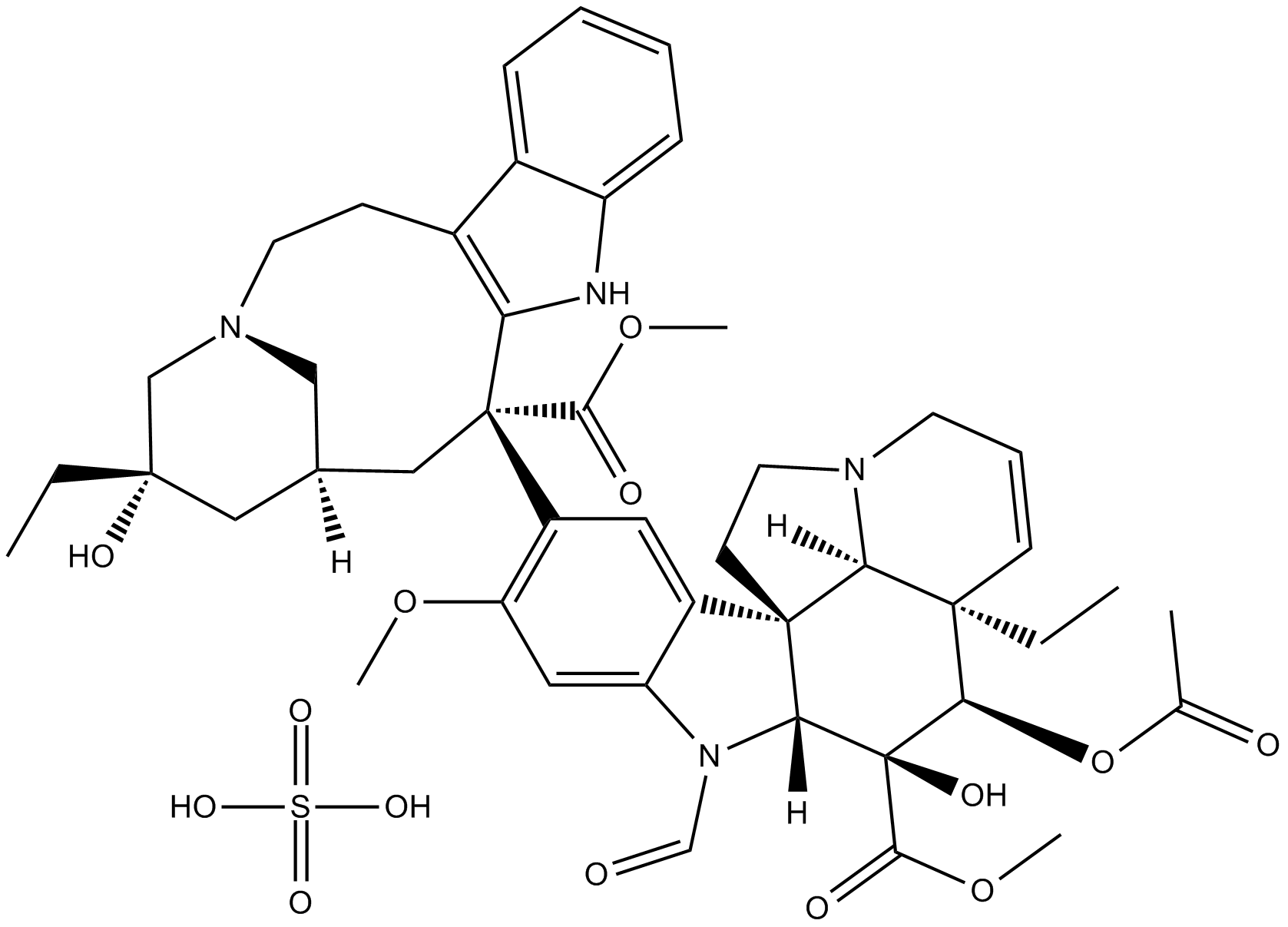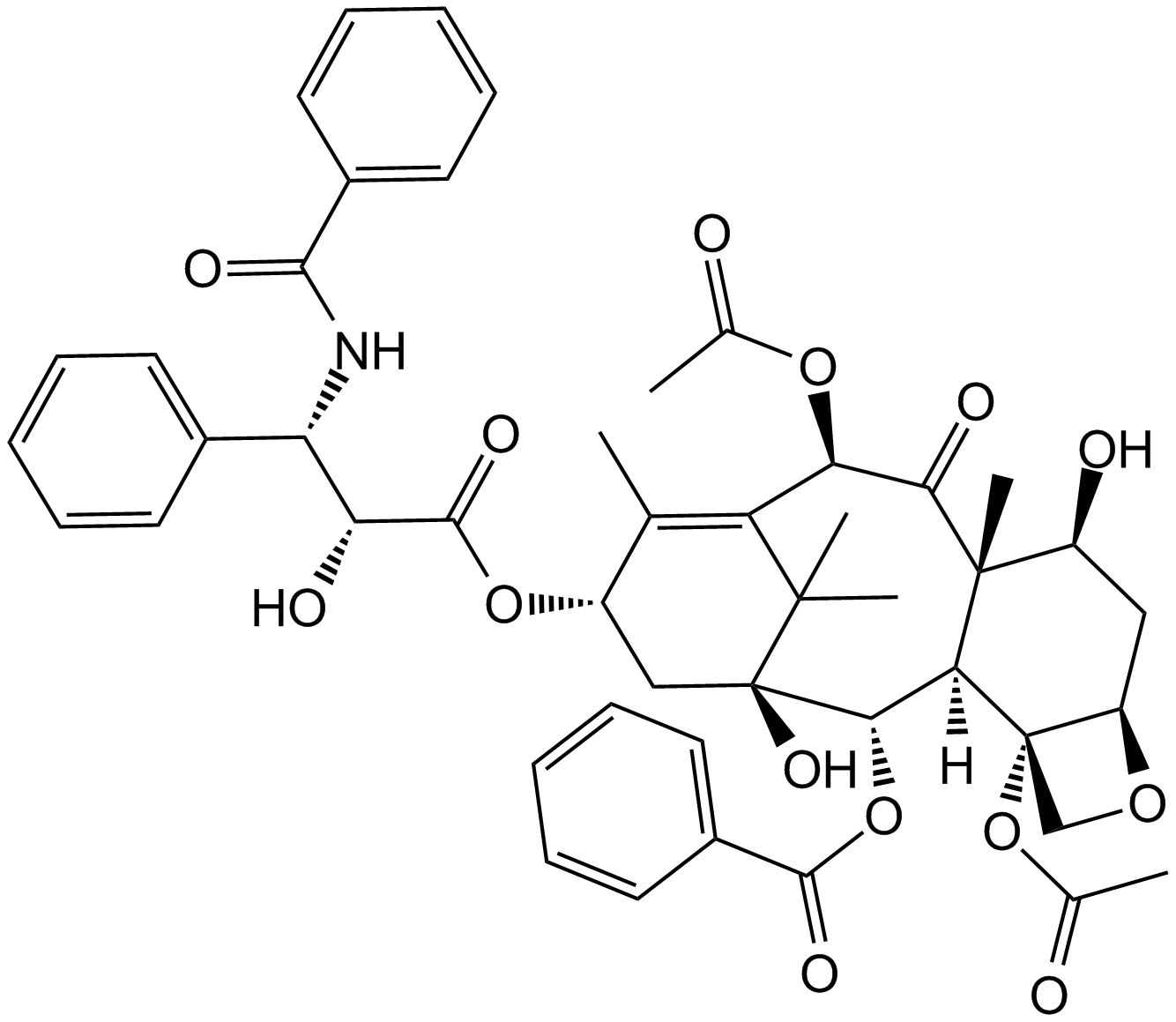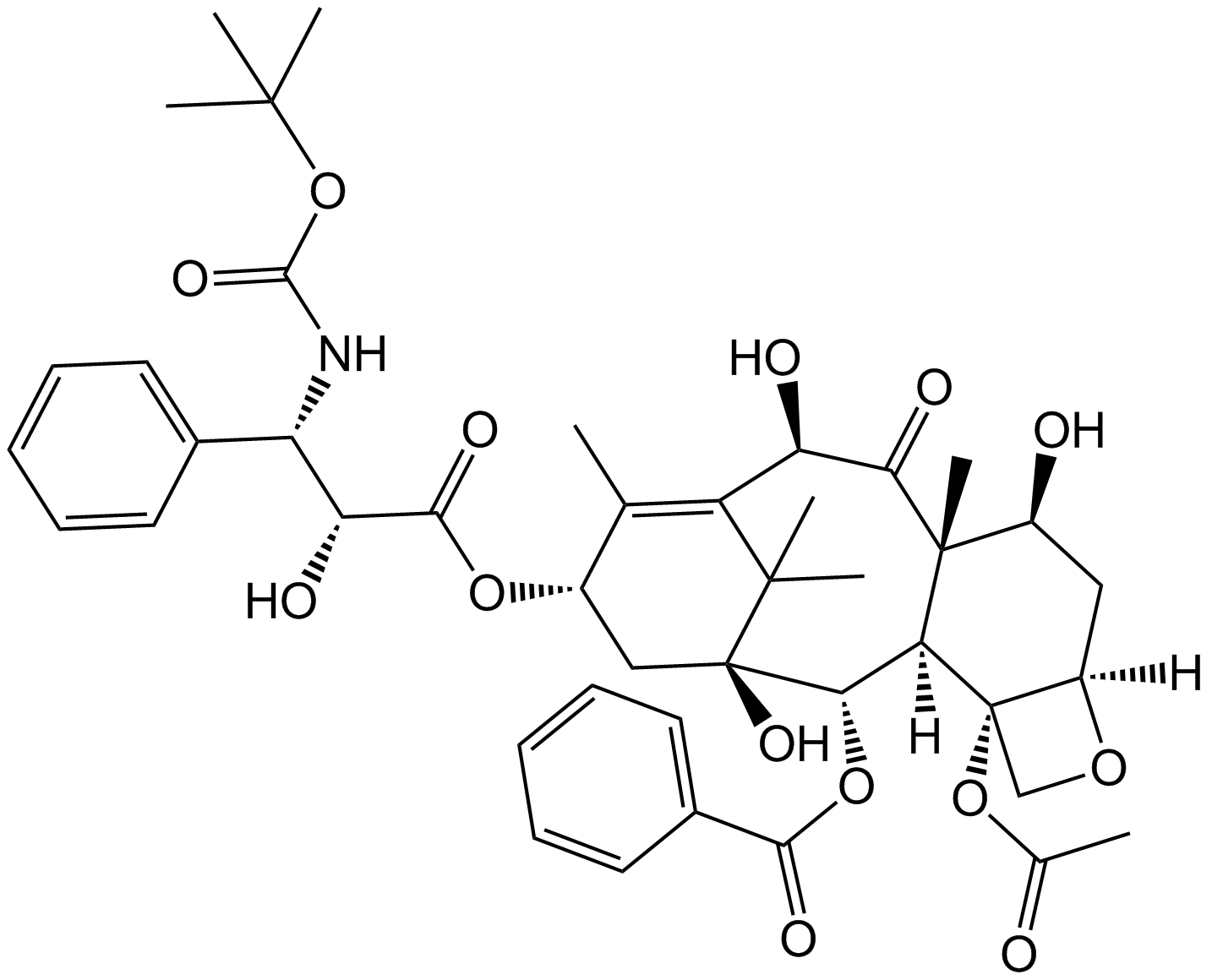ABT-751 (E7010)
ABT-751(E 7010) is a novel bioavailable tubulin-binding and antimitotic agent [1][2].
Microtubules are major structure of cells. They play an important role in cellular movement, intracellular transport, cell shape, cellular polarity, and the segregation of chromosomes during mitosis[1].
ABT-751 binds to the colchicine site on ß-tubulin and inhibits polymerization of microtubules, which block the G2/M phase of the cell cycle and promote apoptosis [1]. In endothelial cells, ABT-751 caused significant loss of microtubules and endothelial cell retraction within 1 h in a does-dependent and reversible way [2].
In a rat subcutaneous tumor model, ABT-751 (30 mg/kg, intravenously) reduced tumor perfusion in a rapid, transient way. And tumor perfusion decreased by 57% after 1 h [3]. In Calu-6 xenograft model, ABT-751 dosed at 100 and 75 mg/kg/day showed significant antitumor activity. In combination with cisplatin, ABT-751 enhanced the growth delay in a dose-dependent way [1].
References:
[1]. Jorgensen TJ, Tian H, Joseph IB, et al. Chemosensitization and radiosensitization of human lung and colon cancers by antimitotic agent, ABT-751, in athymic murine xenograft models of subcutaneous tumor growth. Cancer Chemother Pharmacol, 2007, 59(6): 725-732.
[2]. Luo Y, Hradil VP, Frost DJ, et al. ABT-751, a novel tubulin-binding agent, decreases tumor perfusion and disrupts tumor vasculature. Anticancer Drugs, 2009, 20(6): 483-492.
| Physical Appearance | A solid |
| Storage | Store at -20°C |
| M.Wt | 371.41 |
| Cas No. | 141430-65-1 |
| Formula | C18H17N3O4S |
| Solubility | insoluble in H2O; ≥18.55 mg/mL in DMSO; ≥25.53 mg/mL in EtOH with ultrasonic |
| Chemical Name | N-[2-(4-hydroxyanilino)pyridin-3-yl]-4-methoxybenzenesulfonamide |
| SDF | Download SDF |
| Canonical SMILES | COc(cc1)ccc1S(Nc1c(Nc(cc2)ccc2O)nccc1)(=O)=O |
| Shipping Condition | Small Molecules with Blue Ice, Modified Nucleotides with Dry Ice. |
| General tips | We do not recommend long-term storage for the solution, please use it up soon. |
| Cell experiment [1]: | |
|
Cell lines |
RD, TC-71, LD, HTB-186, HOS, SK-N-AS, SK-N-DZ and KCNR pediatric solid tumor cell lines |
|
Preparation method |
The solubility of this compound in DMSO is > 18.6 mg/mL. General tips for obtaining a higher concentration: Please warm the tube at 37 ℃ for 10 minutes and/or shake it in the ultrasonic bath for a while. Stock solution can be stored below -20℃ for several months. |
|
Reacting condition |
0.1 nM-100 μM |
|
Applications |
ABT-751 showed the selective cytotoxicity with IC50 of 0.6–2.6 μM in neuroblastoma and 0.7–4.6 μM in other solid tumor cell lines. ABT-751 exhibited a selective effect on dynamic microtubules and spared stable microtubules, accounting for the persistence of acetylated and detyrosinated α-tubulin positive polymerized tubules at the IC90 concentration of ABT-751. |
| Animal experiment [2]: | |
|
Animal models |
Nude mice bearing Calu-6 non-small cell lung carcinoma (NSCLC), HT-29 colon carcinoma, and HCT-116 colon carcinoma xenografts |
|
Dosage form |
Orally once a day at 75 or 100 mg/kg/day on a 5-days-on, 5-days-off schedule for two cycles |
|
Application |
In the Calu-6 xenograft model, ABT-751 as a single agent at 100 and 75 mg/kg/day showed significant antitumor activity, while in combination with cisplatin, ABT-751 dose-dependently enhanced growth delay. In the HT-29 colon xenograft model, ABT-751 showed significant antitumor activity as a single agent and produced a dose-dependent enhancement in growth delay in combination with 5-FU. |
|
Other notes |
Please test the solubility of all compounds indoor, and the actual solubility may slightly differ with the theoretical value. This is caused by an experimental system error and it is normal. |
|
References: [1]. Meany H J, Sackett D L, Maris J M, et al. Clinical outcome in children with recurrent neuroblastoma treated with ABT‐751 and effect of ABT‐751 on proliferation of neuroblastoma cell lines and on tubulin polymerization in vitro[J]. Pediatric blood & cancer, 2010, 54(1): 47-54. [2]. Jorgensen T J, Tian H, Joseph I B J K, et al. Chemosensitization and radiosensitization of human lung and colon cancers by antimitotic agent, ABT-751, in athymic murine xenograft models of subcutaneous tumor growth[J]. Cancer chemotherapy and pharmacology, 2007, 59(6): 725-732. |
|
| Description | ABT-751 is an inhibitor of microtubule polymerization. | |||||
| Targets | microtubule polymerization | |||||
| IC50 | ||||||
Quality Control & MSDS
- View current batch:
Chemical structure
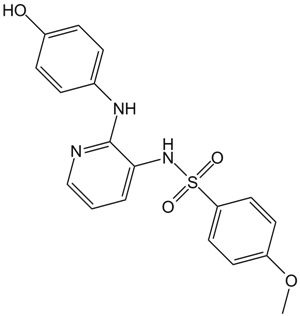
Related Biological Data
